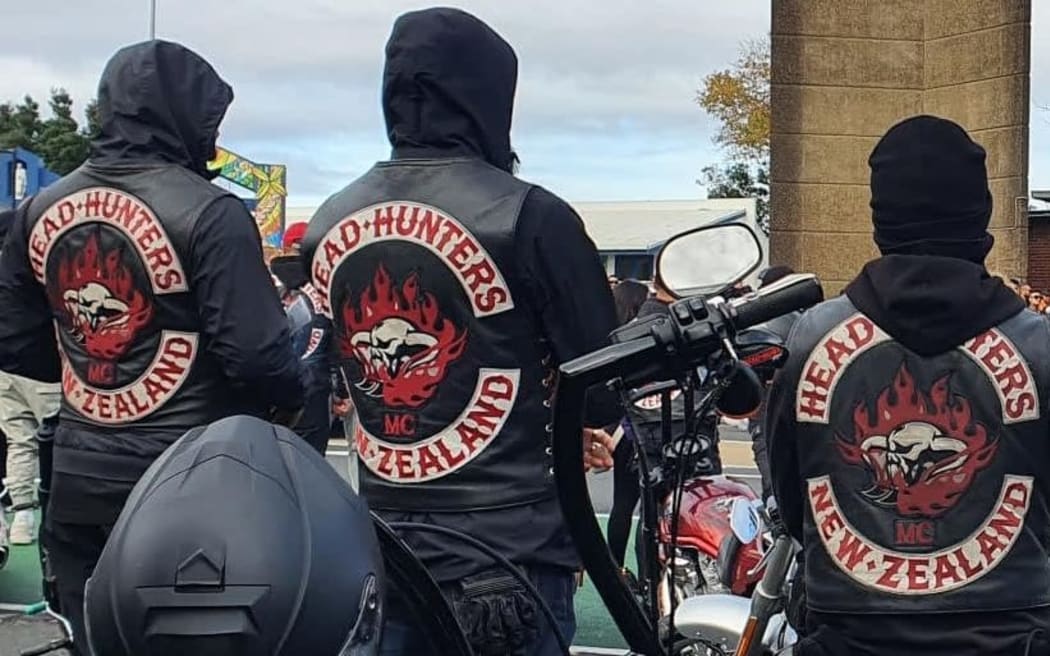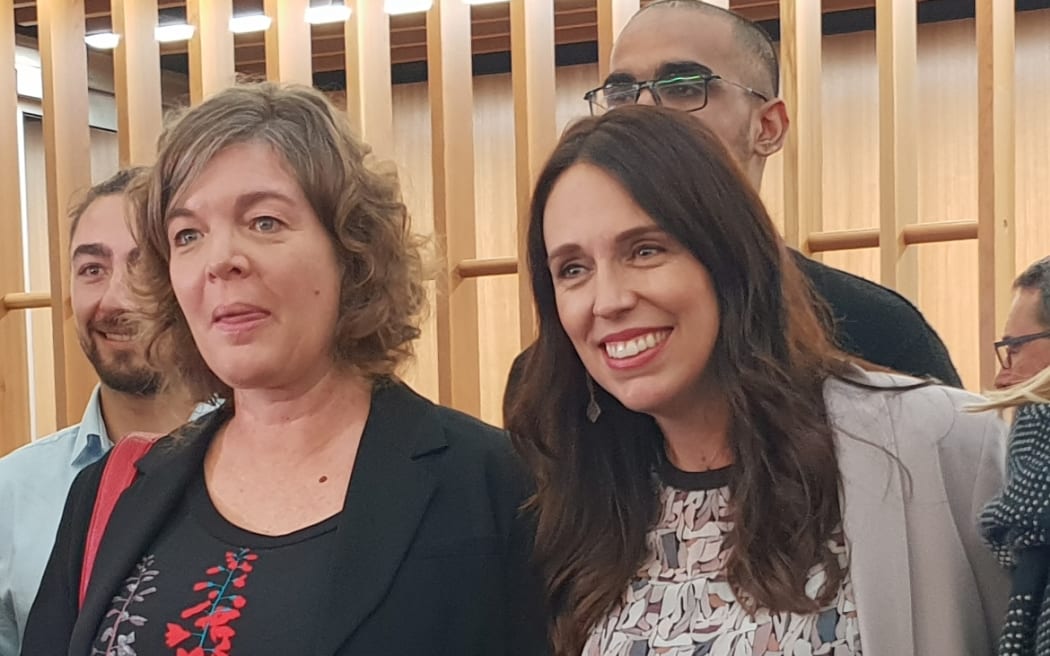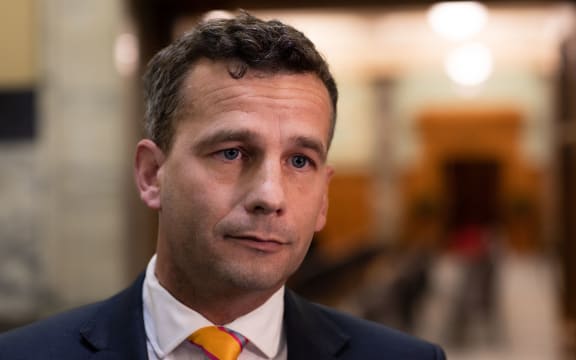
Professor Dame Juliet Gerrard's report examines the context within which gangs exist. File pic Photo: RNZ / John Edens
The prime minister's chief science advisor is warning New Zealand cannot arrest its way out of the gang problem.
Professor Dame Juliet Gerrard has quietly released a new report which examines the context within which gangs exist in New Zealand.
It was requested last year by former prime minister Jacinda Ardern, "to support a policy agenda to reduce gang harm in our communities".

Professor Dame Juliet Gerrard with former prime minister Jacinda Ardern. Photo: RNZ / Katie Scotcher
The government has long been under pressure to control gang crime, with opposition parties accusing Labour of being soft on crime.
The report concludes there is no quick way of reducing gang harm.
Reducing harm, the report said, would require tackling the underlying and unsolved societal issues, including inequity, intergenerational trauma, housing and family violence.
"All of which serve to narrow the choices of those in our society who experience complex and inter-connected stressors," it said.
While the report makes no specific recommendations, it does suggest introducing policies on family harm, youth offending and drug harm reduction.
The report said a public health approach "does not come at the expense of enforcement" but stressed "we can't and won't arrest ourselves out of the "gang problem".
Legislative and police efforts to address gangs might deliver immediate outcomes, the report said, but longer-term interventions would be required to "build the society that we want in the long term."
Enforcement serves a purpose but is not the only solution, it added.
"The evidence indicates that interventions such as 'scared-straight' or boot camp approaches are ineffective. And a 'zero tolerance' style of policing builds distrust in the communities that police are tasked to serve.
"It creates alienation and dislocation from communities and risks fuelling gang membership and increasing gang dislocation and isolation.
"We know that targeted enforcement efforts run the risk of strengthening internal gang cohesion, reinforcing anti‐social attitudes, and simply displacing offending elsewhere rather than addressing the problem at its root," the report said.
The report suggested greater focus on prevention - which could include targeted programmes or poverty reduction and increased access to healthcare - to limit the number of young people joining gangs.
It said a young person having strong ties with their family, school and community would also reduce the chance of them being involved in a gang.
Investment to ensure young people "enjoy" those strong ties "offers the most hope of diminishing gang harm in the long term."
The report said preventing young people from joining gangs was likely more cost effective than trying to facilitate disengagement.
Political parties respond
Minister of Police Ginny Andersen said the government welcomed the report.
"It identifies that there are no quick fixes when it comes to gangs and the underlying social issues that drive gang membership and activity."
Andersen said government action was focused on both stopping the harm that gangs do as well as well as creating opportunities to ensure people do not enter gangs in the first place.
"Our investments have seen nearly 700 additional police working on, and an additional $94 million invested in, tackling gangs and organised crime.
"This is showing results with nearly 40,000 charges laid and over 400 firearms seized through Operation Cobalt."
The National Party doubled down on its tough-on-gangs rhetoric, its police spokesperson Mark Mitchell saying he disagreed with the report.
"I would call on the gang leaders to stand up and recognise the fact that the gang culture has a very negative effect on not only the communities that they're in but their own members, their families and their children. "

David Seymour Photo: RNZ / Angus Dreaver
ACT Party leader David Seymour dismissed the report as little more than a doorstop - of no comfort to victims.
"They're attempting to claim that if only the authorities are nice to gangs and treat them as friends they'll start being nice back.
"Thankfully for them Labour has subjected New Zealanders to a real world experiment. They don't improve their behaviour, in fact they get worse."
The Green Party's justice spokesperson Golriz Ghahraman said successive governments had stoked fear over gangs for votes.
"People are very naturally fearful of crime, in particular violent crime, and it's always easier to tell them it's a simple solution. The tough on crime rhetoric has been that simple solution."
Ghahraman added it would take political willpower to adopt an approach that actually works.
"When will the politicians have the courage and the integrity to say to the public, actually we have the solutions, they're a bit more complicated and you know what they take to resource."
'This isn't an either or situation'
Dame Juliet told Morning Report a focus on prevention would accompany police action on criminal offending.
"We definitely need to tackle organised crime - the question is which specific legislation you might use to do that," she said.
History suggested using existing laws was more effective rather than gang-specific laws. A zero-tolerance approach risked fuelling gang membership in the long term.
"A focus on criminal offending rather than the jackets they are wearing is thought to be more successful by lots of experts."
Gangs were a global issue but New Zealand was unusual with gang members often family members as well. For children born into a gang or the mother of a child getting out of that environment could be hard but there were interventions to get in early to break that cycle.
"Understanding those family dynamics can guide some successful interventions to support people to make better choices than joining a gang.
"If you think about a child excluded from school, and is on a path to joining a gang, wrapping round interventions with that young person to support them into making better choices, open up more possibilities than they're seeing in their present life, is something that can accompany the police-type approaches.
"This isn't an either or situation - these are to accompany short-term law enforcement approaches that focus on criminal offending itself."


